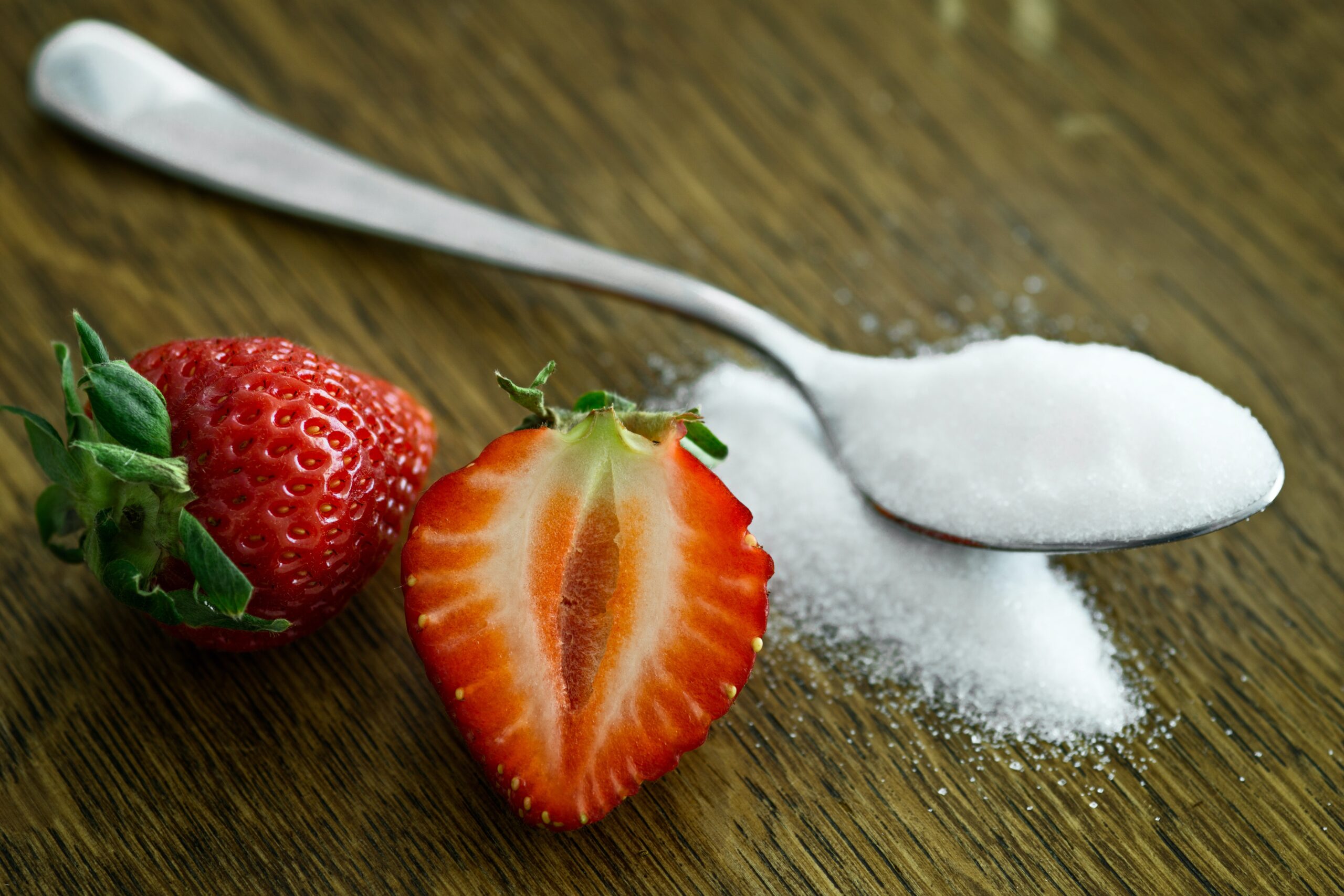Sugar and the Skin |

Ever notice when you’re enjoying a little too many sweets that your skin responds with angry breakouts all over? As strange as it seems, what you eat can directly affect the skin in a number of ways; it is the largest organ in the body after all. In the next few paragraphs, we’ll explore how sugar acts in the body and how your skin and body respond.
First off, sugar is not evil it’s just as with anything you need balance to not overdo it and negatively impact your health. Sugar is thought to have been discovered by our species in our early evolutionary days as it is the source of energy that also encourages the body to hold onto fat which helped aid in overall survival at the time. With sugar being massed produced and in almost all foods today, it’s understandable that we now need to be extra careful. Presented with so many options for energy sources we don’t need to rely so much on sugar to survive.
So, sugar affecting the skin, what does it do? Well in order for the body to turn sugar into energy insulin is required. Insulin is produced by the liver based on the amount of sugar ingested. If you eat a lot of sugar in a short period of time it can cause your insulin levels to spike and eventually this over-production of insulin can lead to your body building tolerance and resistance to it. This causes it to require more insulin to help break down the sugar into energy for your cells. Higher levels of insulin in the bloodstream have been linked to the body producing more oil, this leads to inflammation in the hair follicles and eventually breakouts.
Another way sugar affects the skin is through a process called glycation. Glycation is one of the major causes of skin aging right beside UV damage and is caused by excess sugar intake, free radical damage, and oxidative stress. Glycation occurs when glucose attaches to collagen and elastin fibers in the skin causing them to become rigid and brittle. This causes the skin to lose its structure and suppleness making it appear dull, saggy, and pronounce the appearance of wrinkles. This process is not entirely preventable but can be slowed down with a balanced diet and proper skincare habits.
To summarize, sugar can directly affect the skin at the cellular level by causing overproduction of insulin and can create damaged cell by-products. These are just the concerns that a high sugary diet can do to the skin but there are a number of concerning health benefits to be considered around how much you should have in your diet. Again my goal here isn’t to criminalize sugar, but to boost the importance of knowing balance and moderation when it comes to enjoying it, no need to cut it out completely but eat food rich in nutrients and antioxidants it’ll do your body and overall health lots of good!